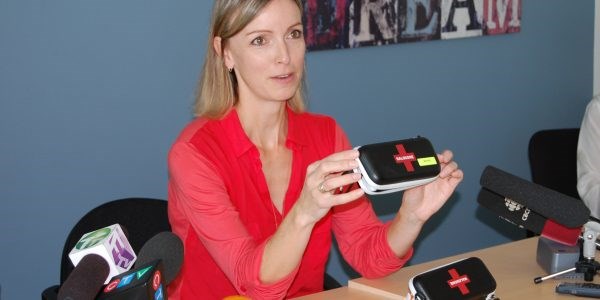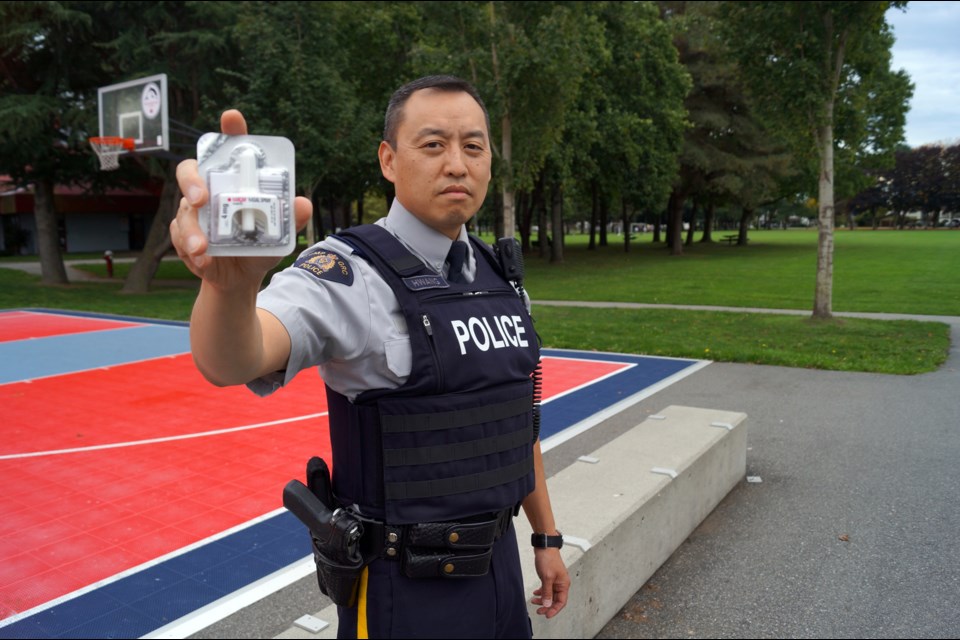While fentanyl-detected deaths in Richmond remain relatively low compared to other municipalities in B.C., Vancouver Coastal Health (VCH) and the city’s first responders appear to be taking few chances in allowing the epidemic to spread.
Richmond Hospital is now equipped with take-home naloxone kits to offer to patients at risk of overdose, according to Karen Barclay, program manager of Community Mental Health and Substance Use at VCH.
Barclay is particularly worried about fentanyl, the fast-acting, powerful synthetic opioid, being laced with party drugs, such as ecstasy and cocaine.
“We need to ensure anyone who uses party drugs also has immediate access to naloxone,” said Barclay, via a news release.
Last year, there were three fentanyl-related deaths in Richmond, out of 152 in B.C., according to the BC Coroners Service. This year, to July 31, 264 people in B.C. have died of drug overdoses with fentanyl in their system, leading to B.C.’s chief health officer declaring the matter a public health emergency in April. Two of those deaths have occurred in Richmond, while 43 have occurred in Vancouver and 30 in Surrey. In B.C. this year, fentanyl was detected in 62 per cent of overdose deaths.

Small doses of fentanyl can impair breathing and cause victims to pass out, resulting in severe brain damage and death.
Barclay worries particularly about youth using drugs and passing out at parties, while their friends consider them to be “sleeping it off.”
“It is essential that people in this state not be left alone,” said Barclay. “We need to ensure anyone who uses party drugs also has immediate access to naloxone,” another drug that works to block opioid receptors and restores breathing within two to five minutes.
Naloxone (commonly administered as a nasal spray) does not cause a high, and cannot be abused as it has no effect on the body in the absence of opioids, noted Barclay.
In 2012, fentanyl-related deaths were relatively few and far between in B.C. The drug has since began showing up in more “recreational” drugs.
This year, to date, there have been 242 overdose cases at Richmond Hospital, up from 190 for the same time period last year, according to VCH.
“The rising number of overdose deaths is alarming,” said Dr. Patricia Daly, chief medical health officer and the vice president, Public Health for VCH.
Daly said VCH is implementing a multi-pronged plan to address fentanyl, including encouraging safer drug use, and providing treatment options for people with substance use disorders.
Earlier in the year, Richmond Fire Rescue was equipped with naloxone. Now, Richmond RCMP officers are carrying the small kits to protect themselves and others who may be affected by being exposed to fentanyl powder.
“One of the dangers is that fentanyl’s very permeable through the skin,” said RCMP spokesperson Cpl. Dennis Hwang.
“Generally, the fentanyl we’re seeing is not the same thing that is being prescribed. One example is pills that resemble oxycodone. But they contain various concentrations of the drug,” said Hwang.



